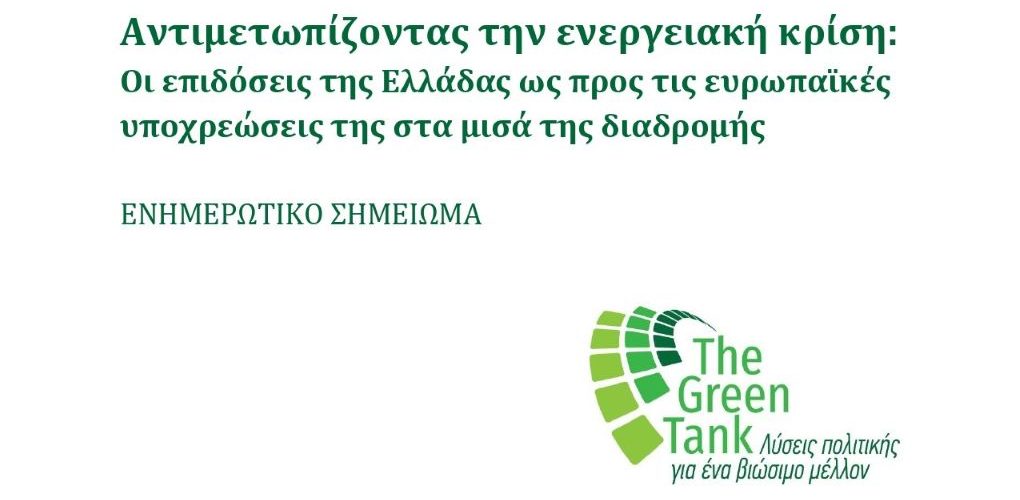The briefing note “Addressing the energy crisis: A halfway assessment of Greece’s performance on its European obligations” charts Greece’s performance with regard to the urgent measures taken by the EU to tackle the energy crisis during the challenging winter months.
Specifically, under two Regulations approved in August and October 2022, the EU set targets for (a) the reduction in gas consumption (-15% for the period August 2022 – March 2023); (b) the reduction in overall electricity consumption by 10% for the period November 2022 – March 2023 & (c) the reduction in electricity consumption during peak hours by 5% for the period December 2022 – March 2023.
In addition to presenting Greece’s performance with respect to these three indicators, the briefing note also evaluates the changes in Greece’s dependence on Russian gas in comparison to the EU average.
The analysis shows that midway through the winter, Greece is adequately meeting all of its obligations, achieving a significant reduction in fossil gas consumption, a decoupling from Russian gas, as well as major energy savings, and an increase in the deployment of renewables. Based on these findings, the achievement of all targets by Greece by the end of the reduction period (March 2023) seems highly possible.
In particular, by December 2022, the country has achieved:
- an 18.2% reduction in total fossil gas consumption compared to the five-year average during the first five months (August-December 2022) of implementation of the relevant EU-27 Regulation, which aims at a 15% reduction over the eight-month period of August 2022-March 2023 compared to the average of the respective 2017-2021 periods.
- a 68.3% decrease in dependence particularly on imported – via pipelines – Russian gas used to meet domestic demand for the whole of 2022 compared to 2021; this constitutes a significantly better performance than the corresponding EU-27 average.
- an 11.4% reduction in gross electricity consumption in the interconnected grid and non-interconnected islands compared to the five-year average during the first two months (November-December 2022) of implementation of the relevant EU-27 Regulation; the latter aims at a 10% monthly reduction during the five-month period November 2022-March 2023 compared to the 2017-2021 five-year average.
- a 8% reduction in electricity consumption on the interconnected grid during peak hours compared to the five-year average during the first month (December 2022) of implementation of the relevant EU-27 Regulation; the latter aims at a 5% reduction in gross consumption at all peak hours over the four-month period of December 2022-March 2023 compared to a baseline scenario. The latter remains to be determined but may include historical data on the past five years (2017-2021).
The briefing note is available here.
The analysis uses data by national (Hellenic Gas Transmission System Operator SA, DESFA; Independent Power Transmission Operator S.A., IPTO, Hellenic Electricity Distribution Network Operator SA, HEDNO) and European databases (Eurostat, ENTSO-e). The time period analysis begins with the entry into force of each decision and concludes in December 2022. More findings are available in The Green Tank’s monthly analyses Trends in fossil gas consumption & imports and Trends in Electricity Production.



















































































































































































































































































































